Study in Austria. 49 best institutions in Austria
This content was developed with active participation of Mary Bousted.
In the process of preparing the material, we referenced the following sources:
- https://www.topuniversities.com/where-to-study/europe/austria/guide
- https://www.internations.org/austria-expats/guide/education.
-
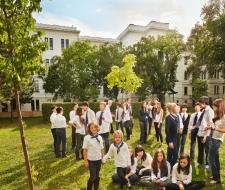 IB World School with an integrated Music and Arts Academy
IB World School with an integrated Music and Arts Academy AustriaViennaCurrently watching: 8from 46640.00 € / yearApply with documents
AustriaViennaCurrently watching: 8from 46640.00 € / yearApply with documents -
 Middle States Association of Colleges and Schools accreditation
Middle States Association of Colleges and Schools accreditation AustriaSalzburgCurrently watching: 10from 41000.00 € / yearApply with documents
AustriaSalzburgCurrently watching: 10from 41000.00 € / yearApply with documents -
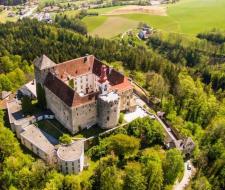
 AustriaViennaCurrently watching: 6from 39900.00 € / yearApply with documents
AustriaViennaCurrently watching: 6from 39900.00 € / yearApply with documents -
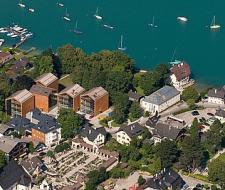 in 2018 an average IBDP score was 33
in 2018 an average IBDP score was 33 AustriaSt. GilgenCurrently watching: 3from 3600.00 € / 2 weeksApply with documents
AustriaSt. GilgenCurrently watching: 3from 3600.00 € / 2 weeksApply with documents -
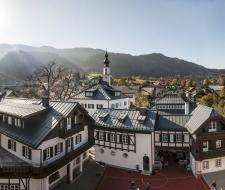 from 25900.00 € / yearApply with documents
from 25900.00 € / yearApply with documents -
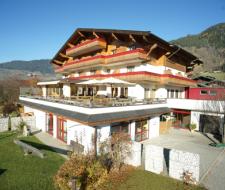 from 2800.00 € / 2 weeksApply with documents
from 2800.00 € / 2 weeksApply with documents -
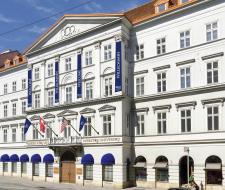 from 30240.00 € / 2 yearsApply with documents
from 30240.00 € / 2 yearsApply with documents -
 from 17390.00 € / yearApply with documents
from 17390.00 € / yearApply with documents -
 from 3000 € / weeksApply with documents
from 3000 € / weeksApply with documents -
 from 1874 € / 2 weeksApply with documents
from 1874 € / 2 weeksApply with documents
Alternative destinations
Education information
Quality education in Austria is offered by many prestigious schools in the country. The schools in Austria provide effective International Baccalaureate and High School Diploma Programs that help foreign students to enter both local and foreign prestigious universities. Higher education in Austria gives great opportunitites for international employment, building a successful career, scientific and research work in the chosen field. Austria is not only a tourist pearl of Europe, famous for ski resorts, musical traditions and original cuisine.
Students can take various courses and programs in Austria that are conducted in German and English. German programs are offered traditionally in public educational institutions. Private schools, like universities, provide their students with a choice: English, German, and bilingual programs are offered in such schools. In private high schools in Austria there is opportunity for foreign children and students for studying and accommodation on the school territory, such educational institutions belong to boarding houses.
What qualification students can receive in schools and colleges in Austria? For example, classical humanitarian, profile, technical, medical. Higher education in Austria is completely open to foreign students. They can qualitatively prepare for admission to any of the universities at specialized courses or while studying at a private school.
Austrian educational traditions have a centuries-old history, the country has presented to the world many great scientists in the field of medicine, natural and exact sciences. Today, the educational sector is actively developing, studying in Austria is very attractive: flexible programs with the optimal ratio of cost and level of preparation allow to meet academic requirements of the most demanding students.
Study in Austria: A Comprehensive Guide
Embarking on a study abroad journey in Austria opens up a world of opportunities. If you're considering studying in this captivating country, there are key aspects you should be aware of, from the application process to program fees and everything in between. In this guide, we'll cover essential information about studying in Austria, including how to apply for a study permit, study fees, program options, and much more.
Exploring the Austrian Education System
Austria's secondary school education for international students is structured in two phases. The initial stage spans four years, starting at the age of six. Upon completing primary school at age ten, students move on to the fifth grade in one of four types of secondary schools:
-
Hauptschule: A high school following the official state educational program. Specializations are offered at the middle school stage, allowing students to choose between humanities, natural sciences, languages, and more. Austria also offers sports and creative emphases for a well-rounded education.
-
Allgemeinbildende höhere Schulen (AHS): These schools provide in-depth studies in several profile disciplines. They're highly regarded among international students, offering quality secondary education and strong preparation for university enrollment in Austria and abroad.
-
Austrian Gymnasiums: Students are grouped into three profile streams, each focusing on a distinct set of subjects.
-
Neue Mittelschule: This experimental school type offers secondary education with specialized subjects. While availability is limited to certain cities, these institutions provide unique programs with a focus on subject depth.

Higher Education in Austria
Austria's higher education system encompasses colleges, universities of the arts, and higher schools. Universities stand out with their free educational format, enabling students to choose priority disciplines and engage in theoretical and extensive profile studies. Studying at an Austrian higher school offers a practice-oriented education, a valuable asset for future endeavors.
Learning Opportunities in Austria
International students have various options for their academic pursuits. Private language centers and schools offer an array of courses, both specialized and combined. These courses extend beyond language learning, incorporating aspects of Austrian culture, history, and more. German and English language courses are particularly popular, with international language schools and centers providing classical and bilingual programs.

Benefits of Austrian Education
Studying in Austria provides numerous advantages:
-
Language Excellence: Austria's pristine German is an excellent choice for those aiming to master the language. Language courses and university programs offer top-notch language education.
-
Diverse Course Selection: Students can attend multiple courses simultaneously, with over 300 faculties available across universities, promoting a comprehensive education.
-
No Age Restrictions: There's no age limit for university entrants, making Austria an inclusive destination for learners of all ages.
-
Cost-Effective Education: Studying in Austria is more affordable than neighboring Germany, offering a favorable balance between cost and quality.
-
Globally Recognized Diplomas: Austrian diplomas hold weight both in Europe and around the world, providing a competitive edge in the job market.
Austrian School Experience
For parents and students alike, Austrian schools offer unique benefits:
-
A rich cultural experience coupled with world-class education.
-
Austria's history, art, music, and literature create a unique cultural backdrop.
-
The country's reputation in winter sports adds to its allure.
-
Austria's political stability and social support systems contribute to a nurturing environment.
-
International students find a welcoming and secure atmosphere, fostering a positive learning experience.
Financial Considerations
The cost of education varies across institutions and programs:
-
Secondary Education: Ranges from 30,000 to 65,000 euros per year, inclusive of accommodations and meals.
-
Language Camps: Typically cost between 600 to 1300 euros per week, covering all expenses except for flights.
-
University Preparation: Approximately 14,500 euros per year, including accommodation.
Your Path to Success
Navigating Austrian education is an investment in your future. With a myriad of options and a strong educational foundation, studying in Austria sets the stage for a prosperous career. Remember, we offer guidance, including free admission services and potential discounts or scholarships. Your journey to success begins with the right education, and Austria is ready to welcome you.

How much do parents need to spend per year besides living and studying fees?
Of course, the amount depends on the wishes, tastes and habits of the family. At AIS-Salzburg, we expect to spend € 30-40 per week for boarders. We try to include the maximum costs in the published, official tuition fees, but pocket money, additional activities, expenses such as entrance tickets for excursions, etc. remain. I think if you plan for additional costs of about 1,500 euros per year, this will be enough.
What is included in the educational system in Austria?
What languages are used in education in Austria?
Can I work while studying in Austria?
What student exchange opportunities do Austrian universities provide?
How much does it cost to study at Austrian universities?
How long does it take to obtain higher education in Austria?
What are the job prospects after graduating from university in Austria?
Can I stay in Austria after finishing my studies?
What support services are available to international students?
How much does it cost to live for students in Austria?
General educational statistics in Austria
Austria - General information
| Region | Western Europe |
|---|---|
| Capital | Vienna |
| Language | German, Croatian |
| Currency | Euro |
| Population | 8,501,502 |
| Phone code | +43 |
Coordinates of Austria
| Time Zone | Europe/Vienna |
|---|---|
| GMT | +1 |
| DST | +2 |
| Latitude | 47.333330000 |
| Longitude | 13.333330000 |
| Elevation (STRM3) | 1359 m. |
Higher education-statistics
| Name | Bakkalaureus |
|---|---|
| Deadline | September 1, February 1 |
| The probability of admission | 87% |
| Duration | 3-4 years |
| Average cost | from 1500 euros per year (in German), from 12000 euros in English |
| Expulsion statistics | 59% |
| Language of tuition | German |
| Minimum level of German | TestDaF 4 |
| Minimum level of English | IELTS 6.5 |
| Job opportunity | 82% |
| Percentage of students enrolled in the master's program | 45% |
Statistics of English courses in Austria
| Programs | Intensity | Group | Language requirements | Cost of the week |
|---|---|---|---|---|
| Standard course | 20 | 8-12 | Beginner | €270/week + |
| Intensive course | 25 | 5-12 | Beginner | €380/week + |
| Super-intensive course | 30 | 5-12 | Beginner | €670/week + |
| Preparation course (ÖSD) | 20 | 5-12 | Elementary | €230/week + |
| Business German course | 25 | 8-12 | Pre-intermediate | €500/week + |
| Summer school | 20 | 10-15 | Beginner | €600/week + |
| German and Music | 20 | 8-12 | Beginner | €1,400/week + |
| One-to-One Training | 5-10 | 1 | Beginner | €440/week + |
Estimated Costs
| Estimated Costs | Min. | Average |
|---|---|---|
| Consular fee of the embassy | €35 | €70 |
| Flight (Moscow - Vienna - Moscow) | €148 | €300 |
| Medical insurance | €8/week | €16/week |
| Study material | €19 | €30 |
| Delivery of invitations by express mail | €60 | €77 |
| Transfer/Escort | €26 | €50 |
| Additional payment for accommodation per week, during the high season | €130 | €210 |
| Additional payment for tuition per week, during the high season | €114 | 150 |
| Student Visa Services | €15 | €52 |
Language - General statistics
| Official language | German |
|---|---|
| English Speaker Percentage | 88.6% |
| Average course cost per week | €500 |
| Visa Application Deadline | 10-30 |



